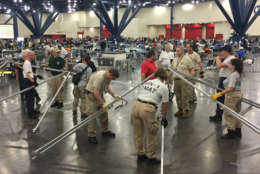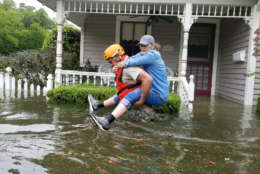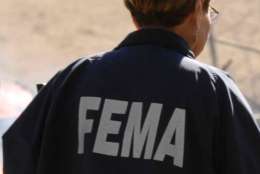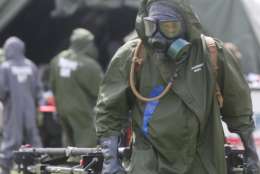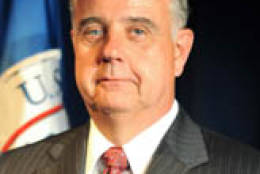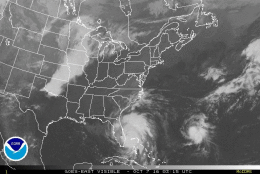FEMA
-
Nearly 13 years later, the DHS IG still disapproves of funds allocated to New Orleans by FEMA after Hurricane Katrina.
August 30, 2017 -
Homeland Security Department employees are leaving their desk jobs to serve in the Surge Capacity Force to help with Hurricane Harvey response.
August 30, 2017 -
As President Trump arrived in Houston Tuesday afternoon, he joined many federal employees already at work providing relief to hurricane victims.
August 29, 2017 -
The Federal Emergency Management Agency is still paying for repairs related to two not-so-recent storms.
August 29, 2017 -
The Homeland Security Department isn't the only agency working on rescue and response to Hurricane Harvey. Other agencies are doing their part to help impacted victims in Texas in Louisiana.
August 28, 2017 -
FEMA has a limited view into the allegations of misconduct that come from the agency's employees, because it lacks both the case management system and the written disciplinary policies to address misconduct from its cohort of temporary workers.
August 01, 2017 -
The Defense Department’s Joint Task Force Civil Support (JTF-CS) participated in Vibrant Response 17 over the last month in an effort to better prepare for a whole of nation response to a chemical, biological, radiological or nuclear attack or accident.
May 12, 2017 -
The federal government was overrun by children on Take Our Daughters and Sons to Work Day, as agencies rolled out vehicles, cool tech, and even some human organs to capture the kids' imaginations.
April 28, 2017 -
Cybersecurity experts from federal agencies and industry say the best defense starts with basic "blocking and tackling," and then a layer of ad lib to throw off hackers who are reading from the same cyber defense cookbooks.
March 29, 2017 -
The U.S. Secret Service might be taking the lead on Inauguration Day, but the FBI Washington Field Office is prepared to offer whatever support is needed to the agents who will be working to prevent and protect against domestic threats.
January 09, 2017 -
A digital services approach won't come from GSA or the White House or any external group. It has to start with program managers and their ability to imagine how digital services could improve what they deliver to their constituents.
November 01, 2016 -
When Hurricane Matthew made landfall in the United States in early October, it was a chance for the Federal Emergency Management Agency to prove it’s learned from its mistakes.
October 28, 2016 -
When Hurricane Matthew stuck the East Coast earlier this month, many people were watching the Federal Emergency Management Agency to see how it would respond. After all, more than five years have passed since a storm like that hit the U.S. FEMA Deputy Director Joe Nimmich tells Federal Drive with Tom Temin the agency's performance showed how it's adapted after lessons learned from Katrina and Sandy.
October 27, 2016 -
Even when the U.S. coastline dodged what could have been a much worse disaster, 22 people died when Hurricane Matthew brushed by. A decade after Katrina and a century after Galveston, Texas, the United States is still bad at disaster recovery, especially when it comes to housing. That's according to Zack Rosenburg, the founder of non-profit SBP, who started his quest for better disaster planning after helping out in Saint Bernard parish in 2006. He joins the Federal Drive with Tom Temin with more.
October 21, 2016 -
Welcome to the #FedFeed, a daily collection of federal ephemera gathered from social media and presented for your enjoyment.
October 11, 2016


